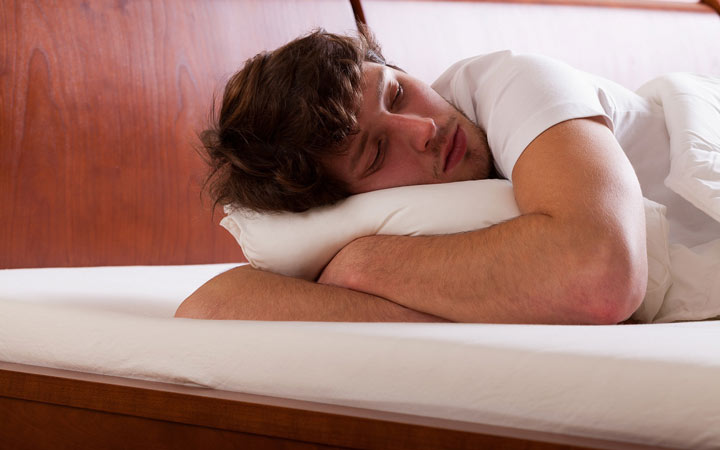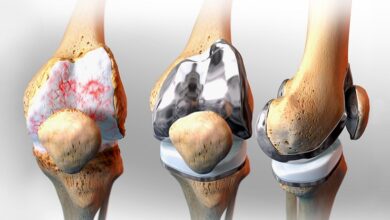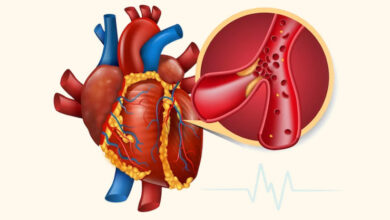What is seasonal depression, and how is it treated?

Seasonal affective disorder is a type of mood disorder that shares similarities with depression, with the difference that seasonal depression occurs only in certain seasons of the year and is resolved with the change of season. This type of depression usually starts in late fall and early winter. It disappears with the arrival of spring and summer. Of course, seasonal depression may also occur in the summer, but its prevalence is less than in the winter.
Signs and symptoms of seasonal depression
This type of depression is usually not considered a separate disorder from other types of depression. Seasonal depression is a model of depression that recurs in certain seasons and shows a repeating pattern. To be diagnosed with seasonal depression, people must have at least 2 years of non-seasonal depression symptoms in specific seasons (winter or summer), so these symptoms are repeated only in those seasons.
Symptoms of non-seasonal depression
Most of us know the symptoms of depression. Of course, every change in mood is not considered depression. Still, in general, the following symptoms are observed in depressed people:
- They feel uncomfortable and bored;
- They feel hopeless or worthless;
- Their physical energy decreases;
- They lose their interest and enthusiasm for the activities that they used to like;
- They do not sleep well ;
- Their appetite and body weight change;
- They feel lazy or confused;
- They can hardly concentrate on anything;
- They frequently think about death or suicide.
Winter Seasonal Depression: Recognizing the Symptoms
Suppose you compare the symptoms of seasonal depression with non-seasonal depression. In that case, you will see that almost the same symptoms are present in both. People who suffer from depression during the winter months often have the following symptoms:
- Decrease in body energy;
- sleeping too much;
- overeating;
- Weight Gain;
- Strong desire to consume carbohydrates (pasta, corn, soft drinks, etc.);
- Withdrawal from society.
Know the symptoms of summer seasonal depression signs (which are less common):
- Loss of appetite that is associated with weight loss;
- insomnia ;
- the mess;
- restlessness;
- anxiety and distress;
- Aggressive behavior.
Factors and characteristics that may increase the risk of seasonal depression
- Gender: Women suffer from seasonal depression four times more often than men.
- Geographical factors: People who live farther from the equator are more at risk of seasonal depression than others. For example, the number of people with seasonal depression in Florida is 1 in 9 compared to England or Alaska.
- Family history: People with a history of any depression are more at risk of seasonal depression than others.
- Having depression or bipolar disorder: Those who suffer from depression or bipolar disorder are easily exposed to seasonal depression. In this case, the symptoms of depression intensify in certain seasons.
- Age: The probability of seasonal depression is higher in young people than in older people. This disorder has been reported even in children and adolescents.
Causes of seasonal depression
The causes of seasonal depression are almost unknown. However, research has been conducted in this field that provides biological clues to this disorder.
- People with seasonal depression may have trouble regulating serotonin in the body. Serotonin plays a pivotal role as a neurotransmitter in modulating mood and emotions. A study showed that the amount of serotonin transporter protein in the body of people suffering from seasonal depression is 5% higher in the winter months than in the summer months. An increase in the serotonin transporter protein causes a decrease in serotonin in the synapses, resulting in depression.
- The body of people with seasonal depression may produce too much of the hormone melatonin. Melatonin regulates sleep, and its production increases in the dark. Because the nights are longer in winter, more melatonin is produced in the body, which leads to sleepiness and lethargy. This is why people with seasonal depression are usually sleepy and dull.
- People with seasonal depression also face vitamin D deficiency. This vitamin plays a vital role in serotonin activity. As a result, the lack of vitamin D could be linked to noticeable symptoms of seasonal depression.
Treatment of seasonal depression
There are four main types of treatment for seasonal depression:
- drug therapy;
- light therapy;
- Psychotherapy;
- Taking vitamin D supplements.
These treatments may be done alone, or a combination may be used.
1. drug therapy
Medications called serotonin reuptake inhibitors (SSRIs), used to treat depression, are also effective in treating seasonal depression. Apart from these drugs, the American Food and Drug Administration (FDA) also approves bupropion for treating this type of depression. However, never use these or any other medications without consulting your doctor. Like other drugs, these inhibitors also have dangerous side effects. The physician will prescribe the appropriate remedy for your specific medical condition.
2. light therapy
Since the 1980s, light therapy has been the primary treatment for seasonal depression. This treatment is such that the person is exposed to a bright artificial light box to compensate for sunlight (which decreases in the autumn and winter). This person should sit in front of this light for 20 to 60 minutes daily and benefit from 10,000 units of white fluorescent light emitted from these light boxes. By doing this, the symptoms of seasonal depression are significantly improved. These light boxes usually have filters to remove ultraviolet rays, and their light is 20 times more than the standard light of the indoor environment. This should be done almost every day from early fall to early spring.
3. Psychotherapy
Cognitive behavioral therapy (CBT) is a form of psychotherapy effective in treating seasonal depression. This treatment relies on cognitive behavioral therapy methods, such as identifying and replacing negative thoughts with positive ones. Along with this method, a technique called behavioral activation is also used. Behavioral activation aims to help a person identify attractive and enjoyable activities. In this way, one can easily spend the winter days.
4. Taking vitamin D supplements
Current research suggests that taking vitamin D supplements alone may not be an effective treatment for seasonal depression. The reason for taking this supplement is that the measured level of this vitamin in people with seasonal depression was shallow. Deficiency of this vitamin is usually because there is not enough vitamin D in the diet or the person is not exposed to enough sunlight. However, there is conflicting evidence about its effectiveness. While some studies indicate that taking vitamin D supplements is as effective as light therapy, others show that taking this vitamin has no effect on improving people’s seasonal depression.
Studies and research are being done to prevent, diagnose, and treat this type of depression. This research aims to examine and study patients and follow them up during trial periods to find effective drugs and treatment methods. It is hoped that conducting this research will lead to finding more effective ways to treat depression, including seasonal depression.








